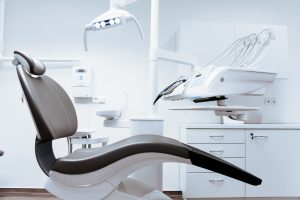Are We Educated Enough On Cavities?
Posted by: Charlie Burrows
Since we were young we have always been told to make sure we brush our teeth everyday, thoroughly and to refrain from eating too many sweets. Obviously this is the core message when we are children but once we become old enough to decide for ourselves what to eat and drink, there is a tendency to forget or ignore the dangers of too much sugar. Aside from the negative health effects, the biggest problem on dental health is cavities and there is a recent report that suggests we are not as aware as we should be, especially when it comes to our kids.
The study, as reported online here, performed by group clinical director for mydentist, Nyree Whitely, showed that almost a third of parents in the UK don’t take their children to the dentist until they have their milk teeth. The assumption being that baby teeth won’t be affected but of course some children will gain their milk teeth later and already be consuming sugary foods and drinks by then. It just can’t be avoided. It’s crucial though that parents know the dangers and are aware of the ongoing issues this can cause for their children later on.
Other data from the report states that 1 in 10 parents would not know that giving their children fruit juices before bed (following them brushing their teeth) could be detrimental to their dental health. Natural sugars in milk can also break down teeth over time and should be avoided before bed after brushing but again, many parents are not aware or simply don’t consider this as an issue.
Cavities
Cavities are the most common problem for children and involves the breakdown of tooth enamel and the resulting holes (cavities) that occur in the tooth. Caused by bacteria, sugar can literally break down the enamel and weaken the tooth under the surface. Foods such as sweets and cakes, and drinks like fruit juices and high sugar drinks can create acids which attack the teeth and along with saliva and bacteria, form plaque.
Warning signs can include light brown areas of the tooth and darker shades eventually after the enamel has broken down. Other symptoms and signs include pain when eating or drinking, as well as sensitivity. People need to be more aware of the risk of cavities and what can cause them and clearly there are still too many of us that don’t understand the impact they can have on children’s teeth.
Tips For Parents
It’s important for parents to have a basic understanding of how to keep their children’s dental health in check and it appears from recent studies that many parents don’t know when to take their children to the dentist or indeed, whether they should buy particular toothpaste containing fluoride and to what levels are beneficial to the very young.
Here are just some of our recommended tips for parents.
Regularly visit the dentist
This is one of the key points which everyone should adhere to, old and young. Parents of toddlers and children of all ages should ensure they visit the dentist at least once a year. This will enable them to identify any potential issues before they arise or at least resolve any current concerns which could be problematic. Kids will drink sugary drinks and eat sweets and chocolate, and this will have a negative impact if they are not brushing their teeth properly everyday.
The dentist will advise on the type of toothpaste your child should use and what foods to avoid or at least limit them to. They’ll also provide strategies for ongoing care and treatment to reduce the risk of tooth decay.
Limit their sugar
The biggest cause of children’s tooth decay is sugar, thanks to the food and drink they are partial to, including snacks and sweets which are so regularly consumed. However, sugar intake can be limited by parents and it’s actually easier to do now than ever before, with the traffic light system in place across many foods and more information online to help people decide what to choose based on ingredients. It can involve a little research but it’s well worth the effort and will help to curb your children’s intake.
Fluoride
Most dentists will recommend fluoride for children older than two years old and most toothpaste for kids will detail on the packet which is suitable for your child. Many people make the mistake of rinsing (adults do it too) before allowing the fluoride to take effect. Brushing teeth involves some rinsing but it’s recommended to avoid rinsing completely and therefore removing the fluoride from the teeth. Always try and leave some in the mouth on the teeth by reducing the level of rinse. It’s also worth making sure they don’t consume any sugary drinks, juices or milk after they brush as this can reduce the effectiveness of the toothpaste and actually cause corrosion. This applies to adults too and it can be quite common for people to drink unsuitable drinks after brushing before sleep.
Make it fun
Kids find brushing awkward and chorelike at first, some may even cry and refuse but it’s important parents encourage them to brush properly and the best way to do this is to make it a fun activity before bed. Whether the parent sits them on their lap or plays a game to encourage them to brush, it’s important not to give up. Comfort items are great for calming them down whilst they brush or alternatively, you can brush together with them. It’s a core habit they should get used to and it should be instilled in them how important regular, correct brushing is.
- Sugar: A Plague for Athletes - 24th February 2020
- The Dangers of Illegal Teeth Whitening - 19th February 2020
- What is Gingivitis? - 23rd January 2020


